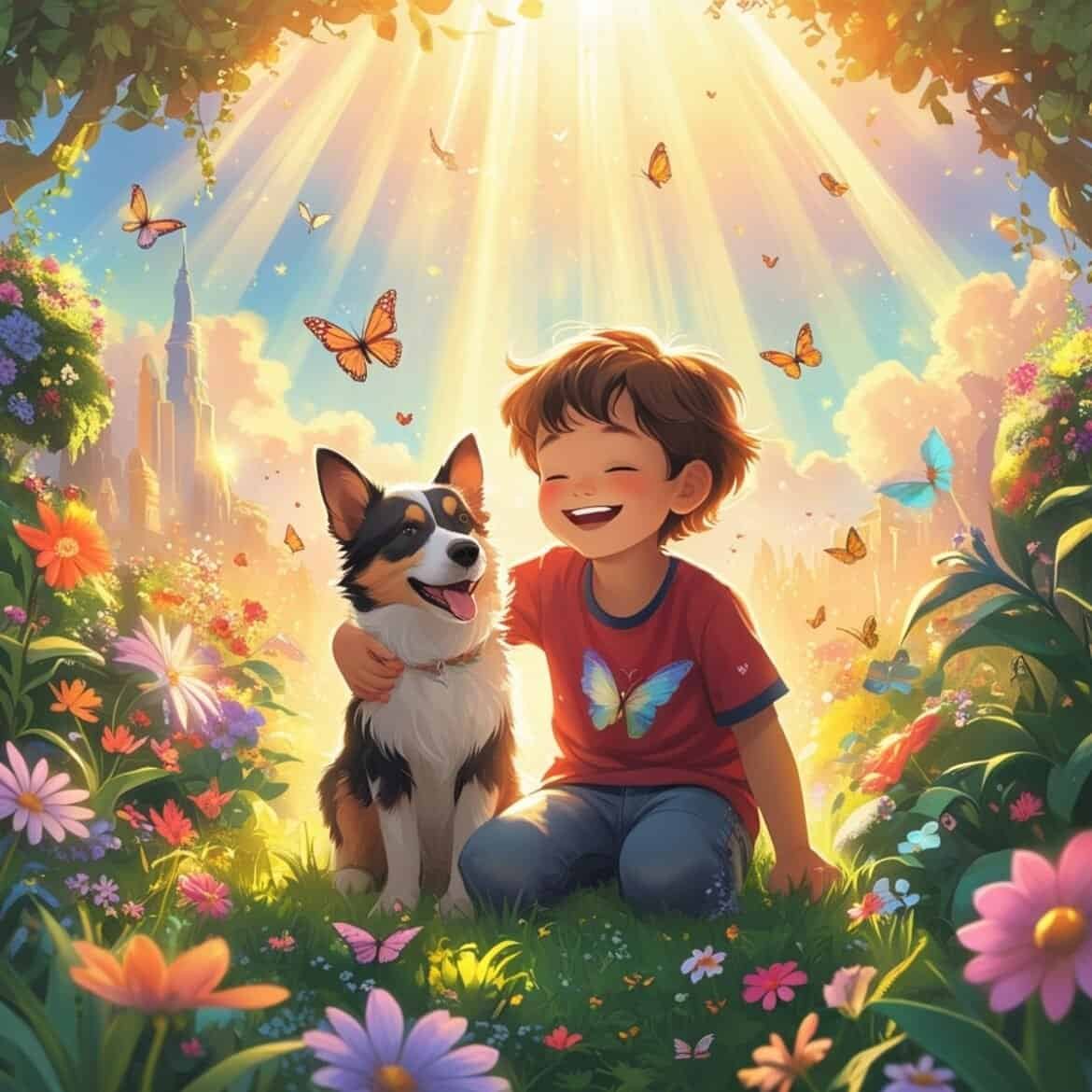Picture a child holding a photo of their pet, asking through teary eyes, “Will I see them in heaven?” It’s a question that stirs something deep within us. Whether it’s the wagging tail that greeted us after a long day or the gentle purr that comforted us during tough times, pets become part of our lives in ways that words struggle to capture. So, when we lose them, the thought of never seeing them again can feel overwhelming.
The Bible doesn’t give us a direct answer, but it offers profound truths about God’s love, creation, and eternity. Let’s explore these themes together and discover the hope Scripture provides.
The Bible’s View on Animals in Creation
From the beginning, animals held a cherished place in God’s design. Genesis 1 describes how God created every creature, calling each “good” (Genesis 1:20-25). They are not accidental or insignificant; they are purposeful, reflecting the beauty and diversity of God’s creative power.
God’s covenant after the flood reinforces this truth. When He promised never to flood the earth again, the covenant was made not only with Noah and his family but with “every living creature” (Genesis 9:9-10). This underscores God’s care for all creation, including animals.
Do Animals Have Souls?
A key theological question is whether animals have souls. In Genesis, the word nephesh (meaning “living being” or “soul”) is used for both humans and animals (Genesis 1:20, Genesis 2:7). However, humans are uniquely made in God’s image (Genesis 1:26-27), which gives us a spiritual capacity for eternal relationship with God.
This distinction doesn’t diminish animals’ value. Ecclesiastes 3:19-21 notes that both humans and animals share the same “breath of life” and return to dust after death. While the Bible is silent on the eternal destiny of animals, it consistently portrays them as part of God’s good creation.
What About Heaven?
The Bible offers glimpses of heaven that include creation in its fullness. Isaiah paints a vivid picture of a restored world where “the wolf will live with the lamb” and “the lion will eat straw like the ox” (Isaiah 11:6-9). This harmony suggests that animals are part of God’s eternal plan.

In Romans 8:19-23, Paul writes about creation groaning for redemption, eagerly awaiting the day it will be liberated from decay. This includes not just humans but the entire created world. This passage gives hope that animals, too, may share in the renewal of all things.
Revelation 21:1-5 describes a new heaven and a new earth, a place where God’s presence will wipe away every tear. Though it doesn’t explicitly mention animals, the vision of a perfect creation suggests they could be part of this restored world.
Different Christian Perspectives
Throughout history, theologians have approached this topic in diverse ways:
- Catholic and Orthodox Views: These traditions emphasize the renewal of all creation. The Catechism of the Catholic Church (2416) highlights humanity’s responsibility to care for animals, reflecting God’s love for His creatures. This perspective supports the idea that animals may have a place in the new creation.
- Protestant Thought: Many Protestant theologians focus on humanity’s unique spiritual nature but leave room for speculation about animals’ role in eternity, pointing to passages like Romans 8 as evidence of God’s redemptive plan for all creation.
Ethical and Emotional Implications
Losing a pet can feel devastating, and the Bible reminds us that God cares about our pain. Psalm 34:18 assures us, “The Lord is close to the brokenhearted.” When grieving a pet, we can take comfort in God’s compassion and His promise of ultimate joy in heaven.
This also reminds us of our responsibility to care for animals as stewards of God’s creation (Genesis 1:28). Proverbs 12:10 reinforces this: “The righteous care for the needs of their animals.” By honoring our pets in life, we reflect God’s love for all He has made.
A Glimpse Into God’s Heart
Scripture reveals God’s tenderness toward animals. Jesus says that not even a sparrow falls to the ground without the Father’s knowledge (Matthew 10:29). If God notices the smallest creatures, how much more does He care about the animals that bring us joy and companionship?
Psalm 36:6 beautifully declares, “You save humans and animals alike, O Lord.” While this doesn’t explicitly address heaven, it reflects God’s comprehensive care for creation.
Teaching Hope to Children (and Ourselves)

When a child asks, “Will my pet be in heaven?” it’s an opportunity to share about God’s love and the hope we have in Him. You might say, “God loves everything He made, and the Bible tells us heaven will be better than anything we can imagine. If having your pet there would make you happy, trust that God knows exactly how to make heaven perfect for you.”
This simple truth reassures children and reminds adults to trust in God’s goodness, even when answers are unclear.
Final Thoughts
Do animals go to heaven? While the Bible doesn’t give a definitive answer, it points to a God who values all creation and promises to make all things new (Revelation 21:5). We can trust in His goodness and look forward to a restored world where joy overflows, and nothing is lost.

Heaven is beyond our understanding, but one thing is sure: God knows the depths of our hearts and the things we love. Whether or not our pets join us in eternity, we can rest in the promise that heaven will be a place of perfect peace and fulfillment.
So, as you reflect on your beloved pet, remember this: the God who created them, cared for them, and gave them to you is the same God preparing an eternity of unimaginable joy. Trust Him to make it perfect—for you and for all of His creation.



